New Caledonia’s Lagoon: Better Understanding for Better Protection
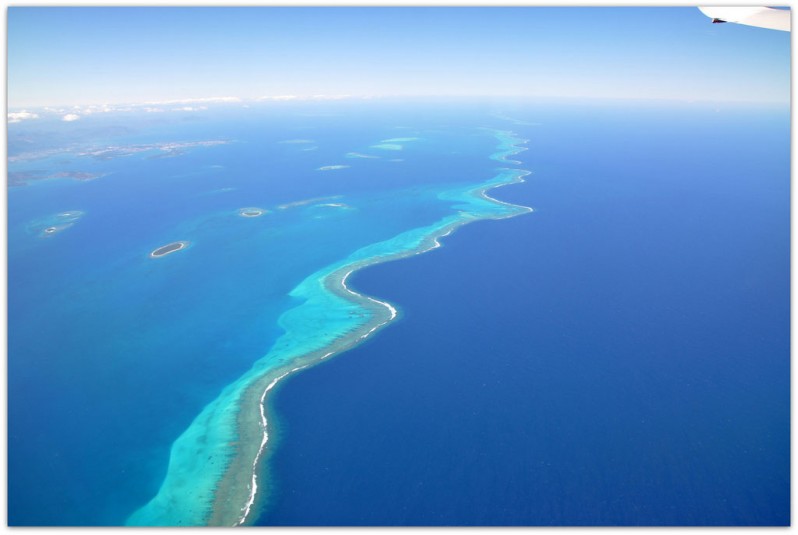
New Caledonia possesses the second largest coral reef lagoon on Earth and harbours an exceptional biodiversity. The island is also the world’s third most important nickel producer. Ore extraction over the 20th Century has in places tripled the input of sediments and accompanying pollutants, such as metals, in the marine environment.
Bioengineering Uses Vetiver Grass to Save Coral Reefs Near Guam
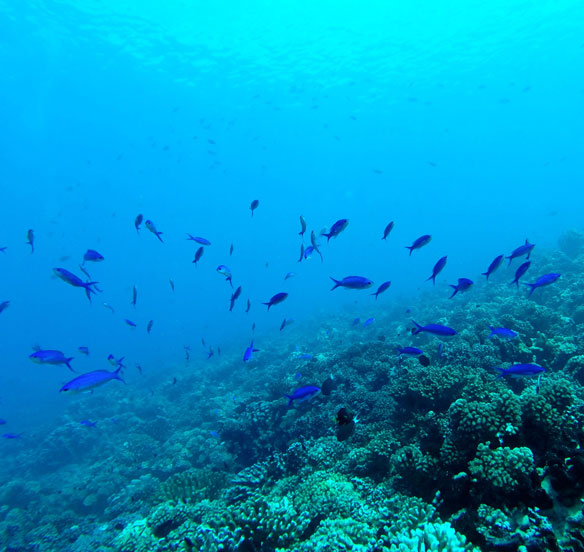
The vetiver grass system is a unique, economical and effective bioengineering technology for protecting coral reefs. It is also expected that these vetiver hedges may even be able to protect the beach area against tidal surge once their root systems are well established.
Corals Moving North to Escape Warming
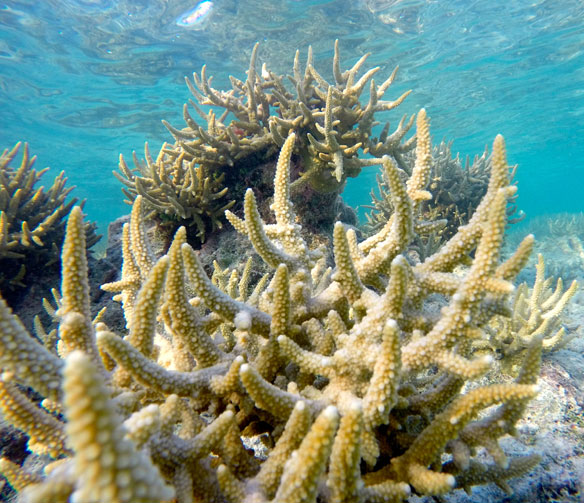
Corals are dying in tropical areas, but now it appears they are expanding their range poleward. However, even if range expansion of corals does occur, the amount of dying corals in tropical areas may be much greater than the new settlements in the temperate regions.
Last Chance Beach, Battling Erosion in Barbados
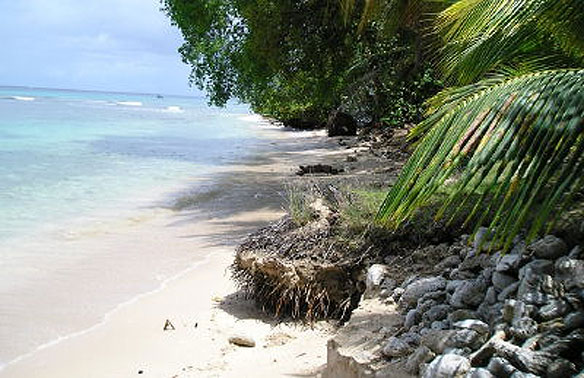
Around Barbados, the most serious threat to the beaches is the loss of coral reefs through nearshore pollution, primarily caused by domestic sewage, and physical clearing. As the reefs die, they lose their ability to reduce the energy and erosive force of incoming waves.
Reefs at Risk Report, Revisited: A Wakeup Call to Protect Coral
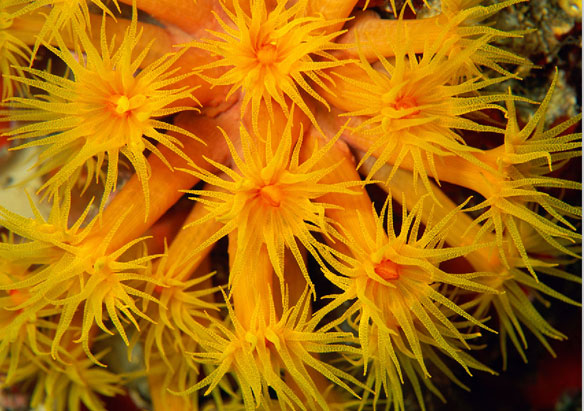
The new Reefs at Risk Revisited report is out, 13 years after the original Reefs at Risk, which was the first global assessment of the threats to Earth’s coral reefs and painted an alarming picture of their future. Today’s edition is even less rosy: three-quarters of the world’s coral reefs are at risk due to overfishing, pollution, climate change and other factors.
Acid Oceans Demand Greater Reef Care
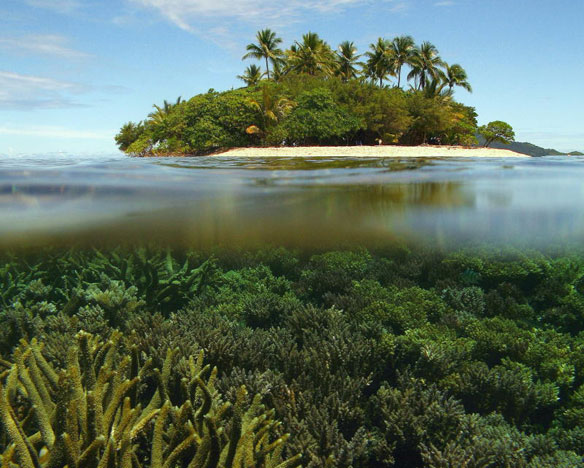
The more humanity acidifies and warms the world’s oceans with carbon emissions, the harder we will have to work to save our coral reefs.
North Australia set to face more weather extremes, corals show
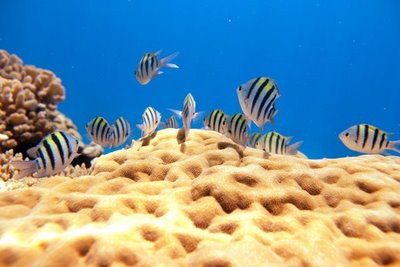
Like pages in a book, near shore corals can help scientists go back in time by revealing years that were unusually wet or dry, and are providing another piece of evidence that maybe suggests that we are seeing some consequences already of global warming.
Cyclone Adds to Barrier Reef’s Flood Woes
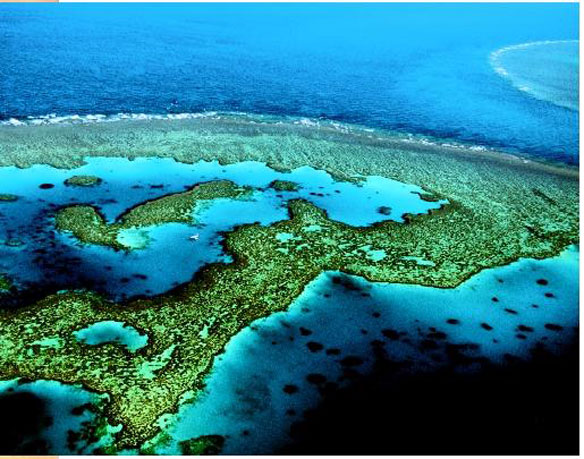
Smashed coral fragments have already begun washing up on Australia northeastern’s beaches.
Jamaica’s Land Reclamation and Coral reefs Damages
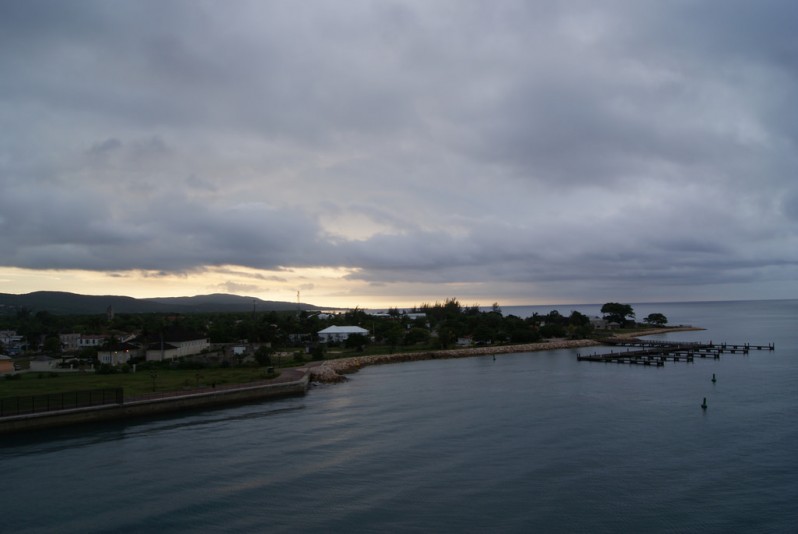
The problem-plagued Historic Falmouth Port has been plunged into a fresh round of controversy as green lobbyists are insisting that 20 hectares of coral and seagrass cover have been damaged due to the development.
